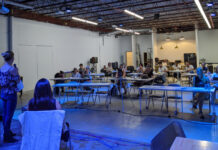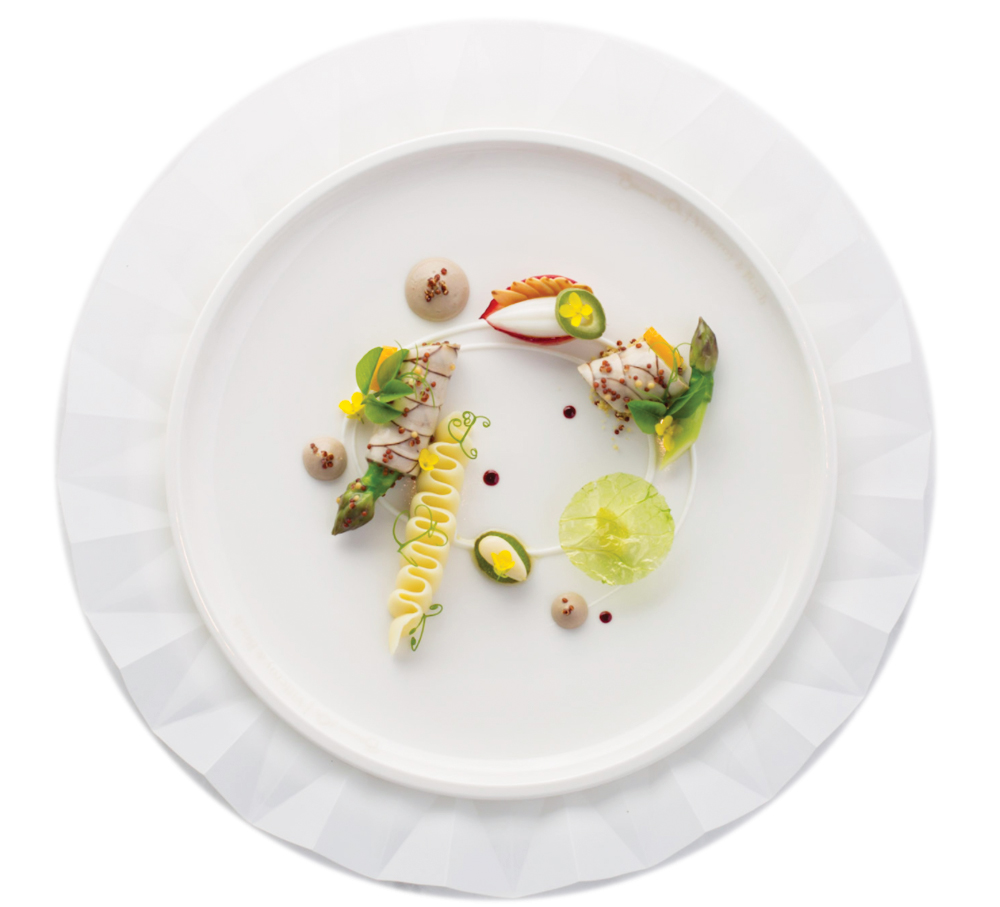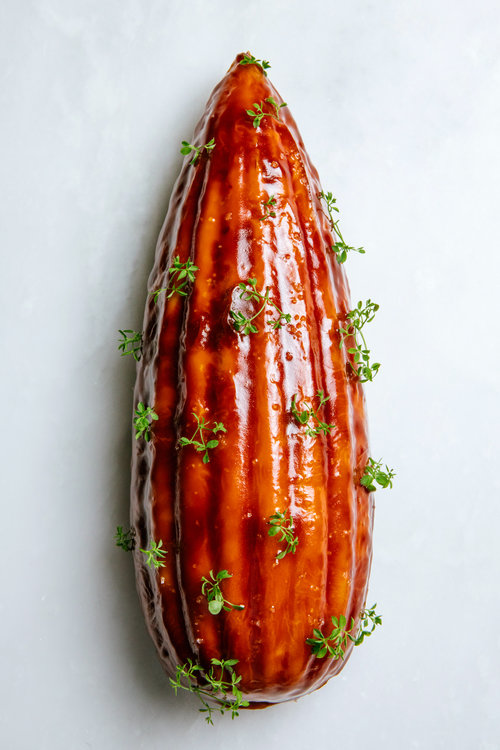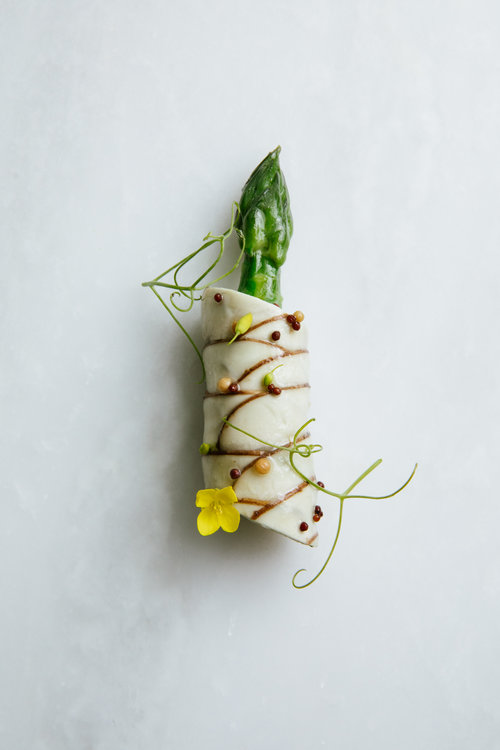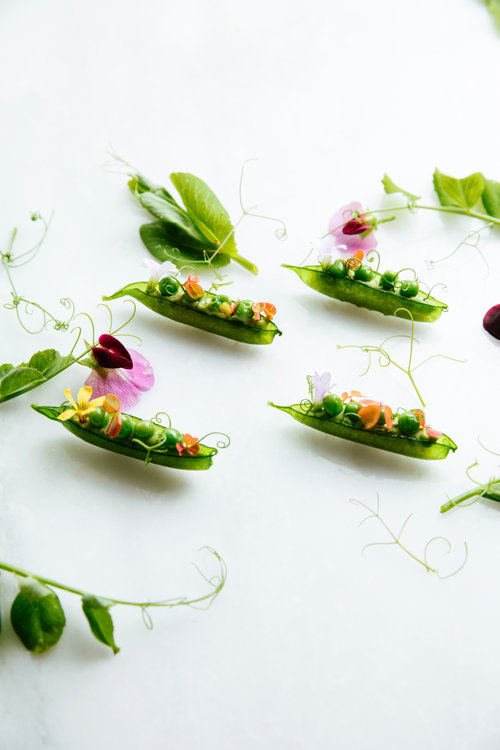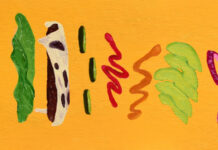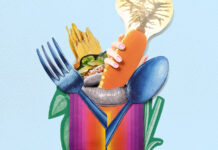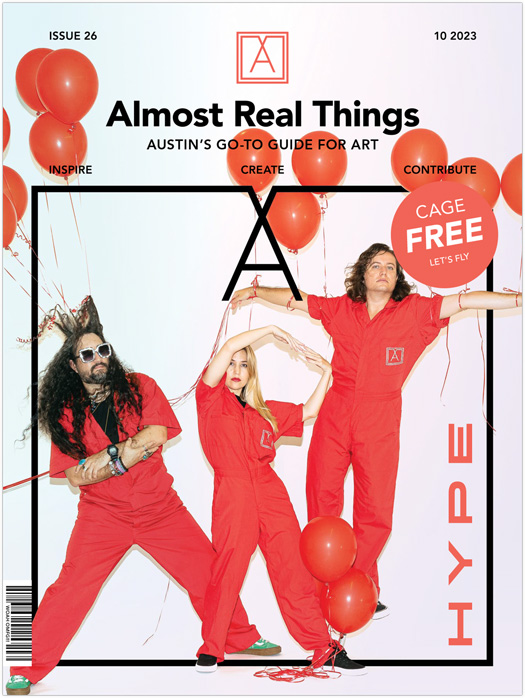There’s been quite a bit of press coverage on Mathew Peters lately and deservedly so. He’s the first U.S. chef to win fold at the Bocuse D’or, the most prestigious chef championship, A.K.A culinary Olympics. Hailing from Napa Valley, California, the former sous chef of Thomas Keller’s award-winning The French Laundry and Per Se, has relocated to Austin with his wife to join her family and begin work on his flagship restaurant.
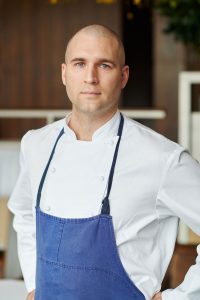
What’s the first thing you remember cooking? Love at first taste?
Had to be eggs for breakfast with my parents. I was intrigued and wanted to help out. I enjoyed cooking but never thought of it as a career. I worked in kitchens around town and realized there’s an art to it. After one semester of general ed. in college, I just wanted to cook.
What role does memory play into your life as a chef?
Memory plays a crucial factor in the food you deliver. It can relate to fun memories from your childhood. You create moments with food.
You mainly focus on french cuisine. Was that the plan?
Ten to fifteen years ago, the French base was what everyone was intrigued by—Jean-Georges, Joel Robuchon, Thomas Keller. So I learned French technique as my base and transitioned into modern American cuisine—a hodge-podge of Southern, Asian, Californian flavors. We’ve gone full circle. People ask, “what is American Cuisine?” It’s too hard to pinpoint. It’s different everywhere!
How did memory play into your work?
Working for Thomas Keller, we were always trying to deliver some fun memories that would maybe relate back to your childhood and create a moment with that food. A little bit of familiarity and then you hit them with the innovation and create a new experience. For Bocuse training, within five and a half hours you have to showcase technical food that’s usually prepared by a crew of 10-12 people in 24 hours, but now you only have two. You have to creating systems and logic. It’s very regimented until it’s muscle memory.
How long did you have to train to establish that muscle memory?
Physically, after establishing food, I trained for 4-5 months but in total, there was about a year of experimenting with flavors, construction, platters and plates. You have to work through the kinks and pay attention to flavor combinations. You have to figure out how to cook chicken in 20 minutes and have time to execute everything else. And then you try to balance and be in sync with your partner.
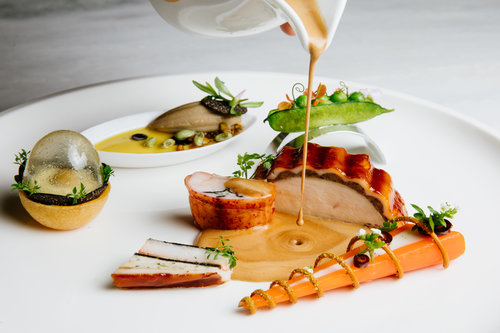
Was it your goal to win the Bocuse D’or and then start your own restaurant?
The goal was always to have my own restaurant and the timing was just right. Keller and Daniel Boulud were pushing us towards competing. It’s the ultimate test for a fine dining chef. You had to showcase every single thing that you have to offer on a technical level. After Philip Tessier did it in 2015, we got excited. There’s a system now. We got on the ball and had an opportunity to win. After seeing what Phil was able to do with his food, I wanted to do the same. So it was either win and get the restaurant or lose and go back to square one.
What’s your vision for the restaurant?
Upscale, fun “smart casual” with a bit of prix fixe. Not fine dining. I hate the term because people’s understanding is twisted—it’s the realm of Daniel Boulud, Jean-Georges, all of these big luxurious pretentious places. Food doesn’t always have to be for the 1%. I love Austin because you don’t have to do that—there are no hoity-toity assholes in jackets.
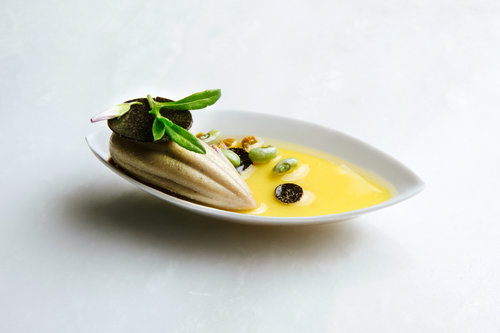
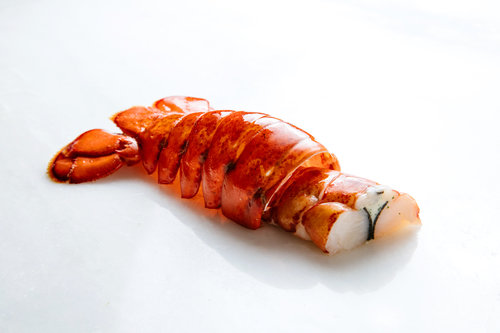
What genre of food will be served?
It’ll be a mixture of everything thrown throughout the states, based on the lighter styles. Think acidic based Spanish flavors that are lighter on the palette.
“fuck, this is a lot of work.”
What are your thoughts on the food scene in Austin right now?
Everyone wants to open a restaurant but they realize, “fuck, this is a lot of work.” But there are a lot of great places—shout out Olamaie, Otoko, La Condesa, MMH. It’s exciting. We plan on doing a little something different.


